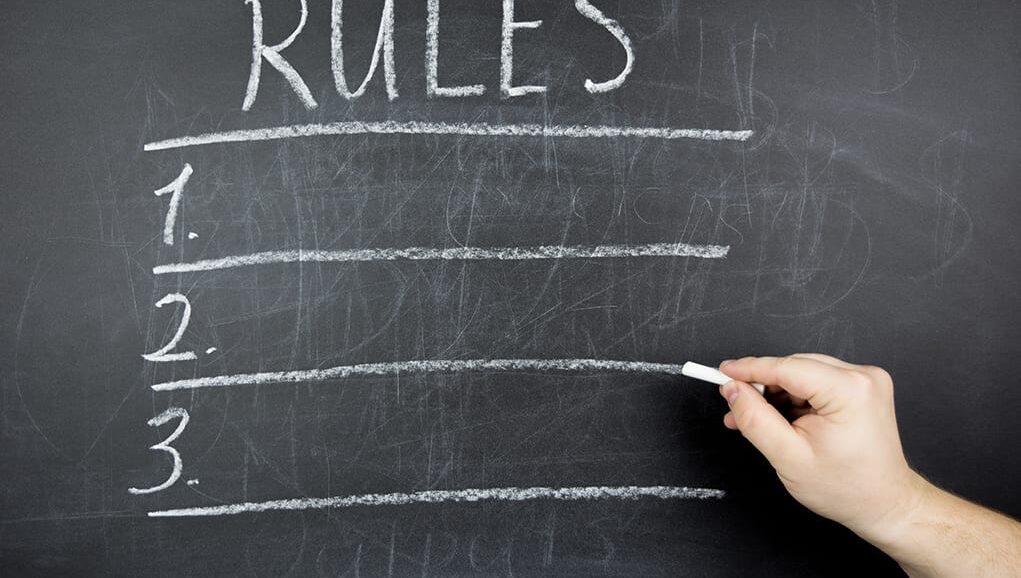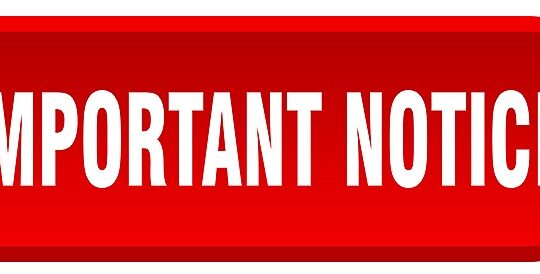Awareness vs Rules
Awareness is about engaging, rules are about following.
Are we moving into a world with less rules and more awareness?
If the world isn’t, maybe you are. And that’s not a bad thing.
For example, in doctor’s offices today notices are posted requesting people to silence their phone and not talk on it while in the waiting room. That wouldn’t have to be a rule if we were all aware enough to realize we don’t all need to hear your conversation. If you have to be on the phone, step outside, please. It’s about respect.
When you think about it, almost every rule wouldn’t need to be in existence if we all had the awareness to realize we’re being disrespectful or unsafe etc.
Rules are Made to be Broken – Sometimes
That’s one reason some people have the attitude of “rules are made to be broken” or “rules don’t apply to me.” If we all had the awareness level to realize why rules were put in place, then we’d realize if we stay respectful, we don’t need rules. Just be respectful. Then you’re good.
Sometimes, however, rules are meant to be broken. That sounds like I’m contradicting myself, but I’m not. Let me explain.
Sometimes a rule just isn’t for you. Perhaps a rule goes against your values or what your body needs etc. For example, if you’re on a diet program and the diet program says to do something, but your body doesn’t react well to their “rule” or guideline, then it’s not in your best interest to pursue it. In that case, that rule is meant to be broken – for you.
How do you know if a rule is meant to be broken because it doesn’t comply with your values or way of life?
Ask your intuition.
When you activate your intuition, you’re tapping into your higher knowing. It’s about engaging your awareness. How do you know you can trust it? Because our intuition always knows what’s best for us. It never steers us wrong.
Instead of reading the sign at the doctor’s office not to be on your phone, you could ask your intuition, “Do I need to be on the phone here?” That’s one way to get the answer. The more obvious way is to know it’s not respectful. But, if you’re not sure, consult your intuition. That’s an easy one.
If something isn’t working well on that diet, instead of fretting about it, ask your body or your intuition if it’s right for you. It will tell you. If it says no, then yes, you’re breaking their diet rule, but if it doesn’t work for you, then why continue it? That rule has nothing to do with respect for others, but respect for your body. Your body says no, so break that rule. You’re not hurting anyone else by breaking that rule. In fact, you’re helping yourself.
Is This Rule for Me?
Any time you’re not sure if a rule or guideline is for you, first ask the obvious question. Will it hurt others or myself if I follow it? Will it hurt others or myself if I break it? If you can’t get the answer just by asking that question, then consult your intuition.
Bear in mind I’m not talking about laws. Laws are stricter than rules. I wouldn’t advise breaking them for the obvious reasons.
Keep in mind it doesn’t make you a “bad” person if you decide to break a rule that isn’t good for you. We tend to get into judgment if we break a rule, especially if we’re the rule-follower type. As I said, sometimes a rule is meant to be broken for you if it’s not in your highest good. That’s why at the end of the day, it’s always best to check in with our higher knowing, our intuition.
Once you get used to trusting your intuition, you also won’t feel guilty if you decide to break a rule that isn’t good for you. There will be no more need to beat yourself up about it or judge yourself. Your higher knowing said that rule isn’t good for you, so end of subject. Don’t follow that rule.
Another benefit of trusting it is if other people contradict you, you’ll know not to listen to them. For example, if they tell you, no, you shouldn’t break the diet program rule because it’s a rule, then you decide to break it, don’t feel guilty. You know what’s best for you and your body, they don’t. They’re going off the fact that you “shouldn’t” (a judgement word) break a rule. Well, sometimes, as we already established, breaking a rule is best for you. Not them maybe, but you. They can decide for themselves whether it’s best to break the rule for themselves.
Next Time a Rule Pops Up
Next time you’re confronted with a rule, especially one you’re not entirely comfortable with, engage your awareness, your higher knowing, your intuition. Ask it if it’s best for you to follow this rule. Your intuition will tell you.
Then no matter what it says, don’t feel guilty. Follow the message from your intuition. It will never steer your wrong. How do I know that? Because intuition is information from the Divine, the All-Knowing, whatever you want to call it. Since it is from a higher source, it knows more than we can ever know. That’s why it’s best to ask it when we’re not sure what to do, which rule to follow or not. We wouldn’t need rules if we were aware enough to realize we don’t need rules if we consult our intuition instead.
Sometimes, rules are meant to be broken – for you.
P.S. If you’re not sure how to engage or trust your intuition, feel free to contact me.






